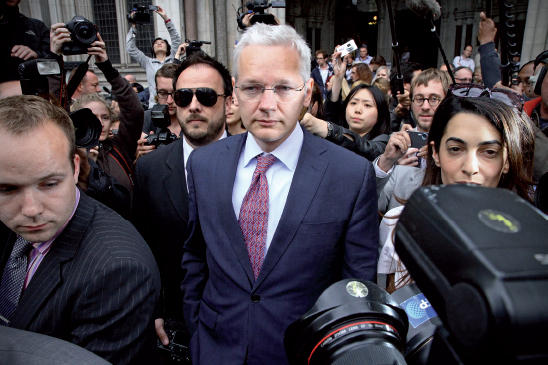The First Amendment in a Democratic Society
Printed Page 439
Ultimately, questions about the First Amendment’s implications for freedom of expression in mass media are really about democracy. And when it comes to our democracy, the news media—whether print, TV, radio, or the Internet—play a particularly important role. For most of our nation’s history, citizens have counted on journalists to alert them to abuses in government and business. But today, news stories tend to address us more as consumers instead of citizens, focusing, for example, on how a business merger affects the immediate price of a product rather than the long-term social and economic impact on workers and communities. Moreover, as newspapers, TV stations, radio stations, and Internet corporations are merged into larger entertainment corporations, or media workers’ jobs are threatened by outsourcing and consolidation, it has become more difficult for journalists to adequately cover and lead critical discussions about media ownership, media regulation, and business practices in general.
For these reasons, it has become more important than ever for citizens to share the watchdog role with journalists. Citizen action groups like Free Press, the Media Access Project, and the Center for Digital Democracy have worked to bring media ownership issues into the mainstream. They remind us that the First Amendment protects not only the news media’s free-speech rights but also the rights of all of us to speak out. Mounting concerns over who can afford access to the media go to the heart of free expression. As we struggle to determine the future of converging print, electronic, and digital media and to broaden the democratic spirit underlying media technology, we need to take part in spirited public debates about media ownership and control, about the differences between commercial speech and free expression. As citizens, we must pay attention to who is included and excluded from opportunities not only to buy products but also to voice their views and thereby shape our nation’s cultural and political landscape. To accomplish this, we have to challenge government and business leaders—rather than assuming that journalists will do so.

In this regard, the Web site WikiLeaks represents the most extreme, controversial, and effective of the organizations devoted to “getting the unvarnished truth out to the public.” Officially launched in 2007, WikiLeaks is known for generating headlines by publishing sensitive corporate communications and secret government documents provided by anonymous sources. For example, in November 2010, the organization supplied five newspapers with the first of 250,000 leaked diplomatic cables from 274 U.S. embassies around the world. Cables addressing the corruption of Tunisian President Ben Ali reportedly helped rally activists in the first of the successful “Arab Spring” revolutions.10
But the site’s most celebrated and notorious work to date attracted worldwide attention with a “data spill” of classified U.S. military documents. The most sensational of this material was the release in April 2010 of video taken from one of two helicopters firing on a crowd of armed and unarmed people in Baghdad. Eighteen were killed in the attack, including two reporters from the Reuters news agency. Later in 2010, Julian Assange, the “editor in chief” of WikiLeaks, worked with journalists at the New York Times, the Guardian, and Der Spiegel to publish more classified material, though care was taken to redact names and not print information that might put lives at risk.11
WikiLeaks continues to release classified and sensitive documents acquired from anonymous sources. It also raises a number of troubling questions about freedom of speech in the age of convergent media. Are there limits to the public’s right to know? Under what conditions do secrecy and confidentiality serve the public interest? Who benefited from the release of military footage of the helicopter attack in Baghdad? Who suffered? What ultimately was accomplished by this action?
Regardless of views on WikiLeaks, the health of our democracy demands an informed electorate, not one that is kept in the dark about who we really are, what we stand for, why we go to war, and how those wars are fought. We need not approve of the methods employed by WikiLeaks in order to recognize the worth of such watchdog groups devoted to keeping the government—and the press—honest.